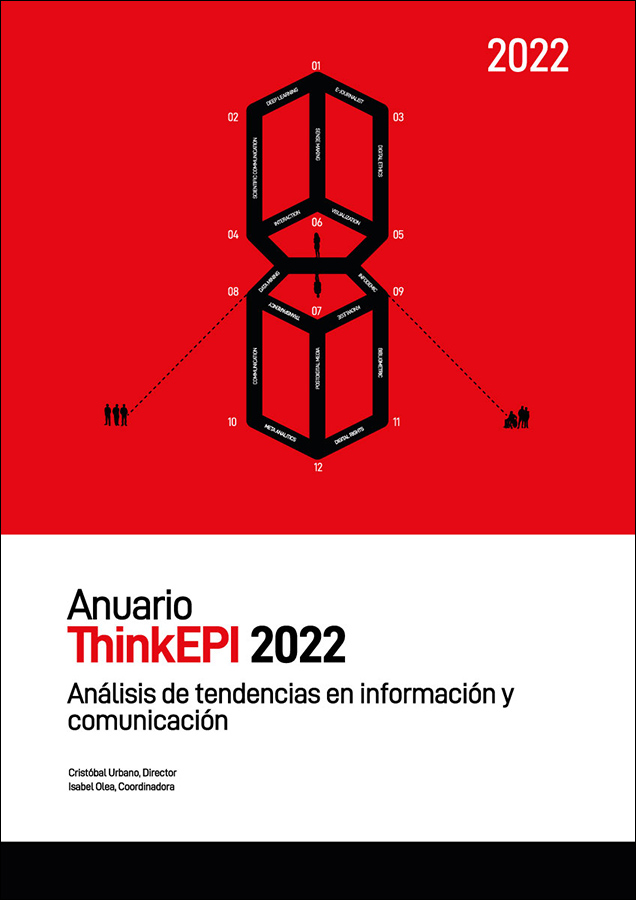Facebook, reputational crisis and escape to the metaverse
DOI:
https://doi.org/10.3145/thinkepi.2022.e16a33Keywords:
Facebook, Meta, Crisis, Reputation, Communication, Trust, Social networks, MetaverseAbstract
Facebook was involved in one of the most important scandals of recent years owing to its legal, political, social, and ethical implications. The Cambridge Analytica case, which has still been insufficiently addressed as an object of study in its full complexity, highlights the incalculable value of user data and the potential for their manipulation. This marked the beginning of the decline of Facebook´s reputation owing to a combination of negative situations and that has continued since. This paper analyzes the case and its implications in terms of the concepts of reputation and crisis, highlighting the importance of a positive image and its impact on different stakeholders, and points to the rebranding as Meta as a false closure of a crisis of confidence that continues today.
Downloads
References
Afriat, Hagar; Dvir-Gvirsman, Shira; Tsuriel, Keren; Ivan, Lidor (2021). ""˜This is capitalism. It is not illegal´: Users´ attitudes toward institutional privacy following the Cambridge Analytica scandal". The information society, v. 37, n. 2, pp. 115-127. https://doi.org/10.1080/01972243.2020.1870596
Alloza, Ángel; Carreras, Enrique; Carreras, Ana (2013). Reputación corporativa. Córdoba: Ed. Almuzara. ISBN: 978 8483567210
Coombs, W. Timothy (2018). "Crisis communication: The best evidence from research". In: Gephart, Robert P.; Miller, C. Chet; Svedberg, Karin. The Routledge companion to risk, crisis and emergency management. Routledge, pp. 51-66. ISBN: 9781138208865
Costa-Sánchez, Carmen (2017a). "Use of YouTube for business communication. Analysis of the content management and level of participation of Spanish best reputed companies YouTube Channels". Corporate reputation review, v. 20, n. 2, pp. 137-146. https://doi.org/10.1057/s41299-017-0021-8
Costa-Sánchez, Carmen (2017b). "Estrategias de videomarketing online. Tipología por sectores de negocio". Communication & society, v. 30, n. 1, pp. 17-38. https://doi.org/10.15581/003.30.1.17-38
Edelman (2021). Edelman Trust Barometer 2021. Executive Summary. Retrieved from https://www.edelman.com/sites/g/files/aatuss191/files/2021-03/2021%20Edelman%20Trust%20Barometer.pdf
Farrés, Héctor (2022). "El metaverso de Facebook está más vacío que Second life: no entran ni sus propios empleados". La vanguardia, 20 octubre. https://www.lavanguardia.com/tecnologia/actualidad/20221020/8572792/el-metaverso-de-facebook-esta-mas-vacio-que-second-life-pmv.html
González-Herrero, Alfonso (2014). "Gestión de la comunicación de crisis: planificación y actualización en empresas e instituciones". En: Túñez-López, Miguel; Costa-Sánchez, Carmen. Comunicación Corporativa: Claves y escenarios. Barcelona: Ed. UOC, pp. 75-99. ISBN: 978 84 9064 366 2
Hays, Kali (2021). "La reputación de Facebook es tan mala que la empresa tiene ahora que pagar más por contratar y retener talento". Business insider, 22 diciembre. https://www.businessinsider.es/facebook-paga-impuesto-marca-atraer-retener-talento-983537
Ji, Yi-Grace; Li, Cong; North, Michael; Liu, Jiangmeng (2017). "Staking reputation on stakeholders: How does stakeholders´ Facebook engagement help or ruin a company´s reputation?". Public relations review, v. 43, n. 1, pp. 201-210. https://doi.org/10.1016/j.pubrev.2016.12.004
Rodríguez, Pablo (2022a). "El metaverso va regular: Meta ya no contratará a 10.000 empleados para desarrollarlo y sugiere despidos". El confidencial, 4 julio. https://www.xataka.com/empresas-y-economia/metaverso-va-regular-meta-no-contratara-a-10-000-empleados-para-desarrollarlo-sugiere-despidos
Rodríguez, Pablo (2022b). "Comienza la purga en Meta: la empresa insta a los jefes a denunciar a los empleados por bajo rendimiento". Xataca, 12 julio. https://www.xataka.com/empresas-y-economia/comienza-purga-meta-empresa-insta-a-jefes-a-denunciar-a-empleados-rendimiento
Valarezzo, Karina (2014). "La comunicación en la responsabilidad social". En: Túñez-López, Miguel; Costa-Sánchez, Carmen. Comunicación Corporativa: Claves y escenarios. Barcelona: Ed. UOC, pp. 127-142. ISBN: 978 84 9064 366 2
Villafañe, Justo (2013). La buena empresa. Propuesta para una teoría de la reputación corporativa. Madrid: Pearson Educación. ISBN: 978 8490353066
Downloads
Published
How to Cite
Dimensions


